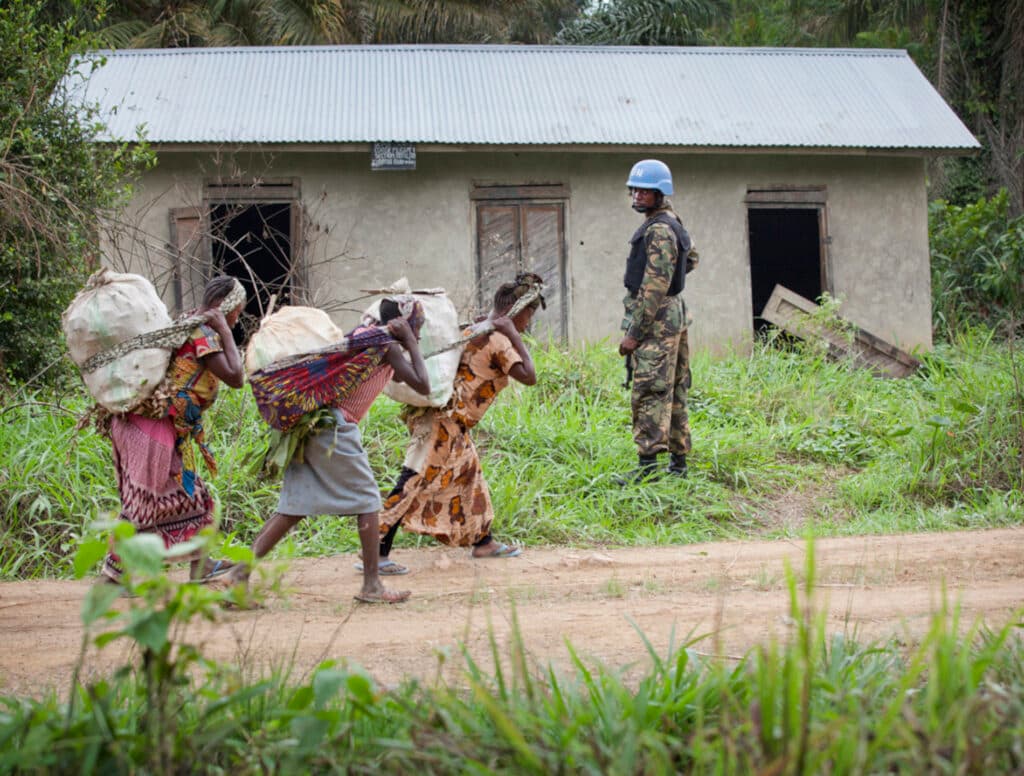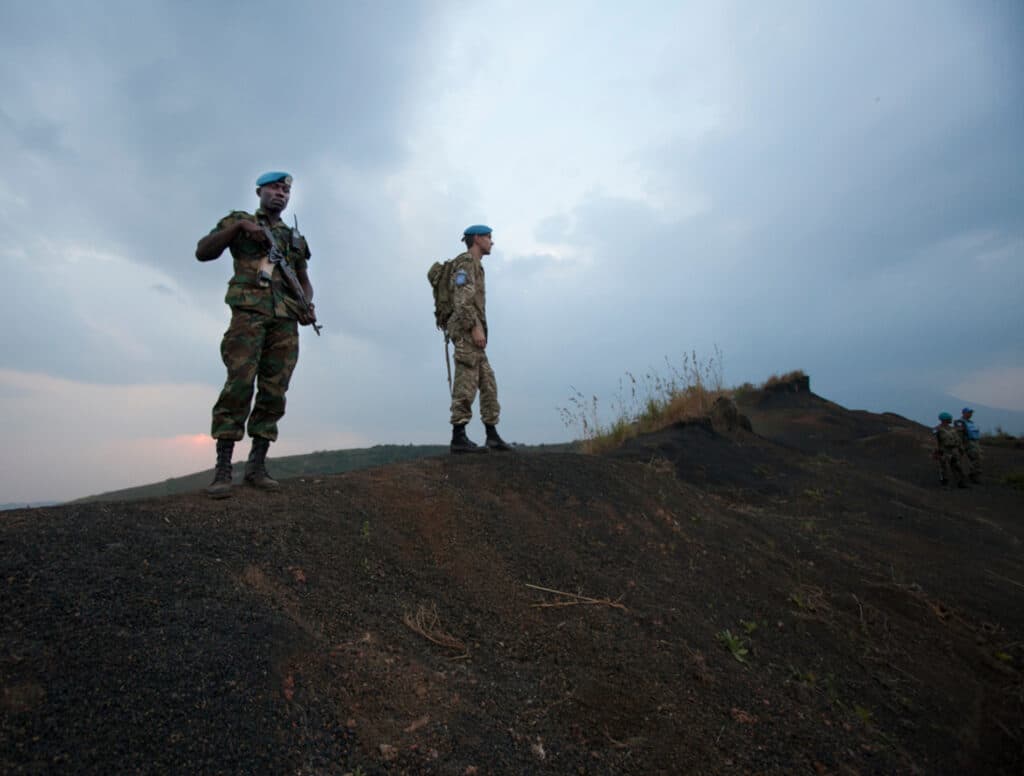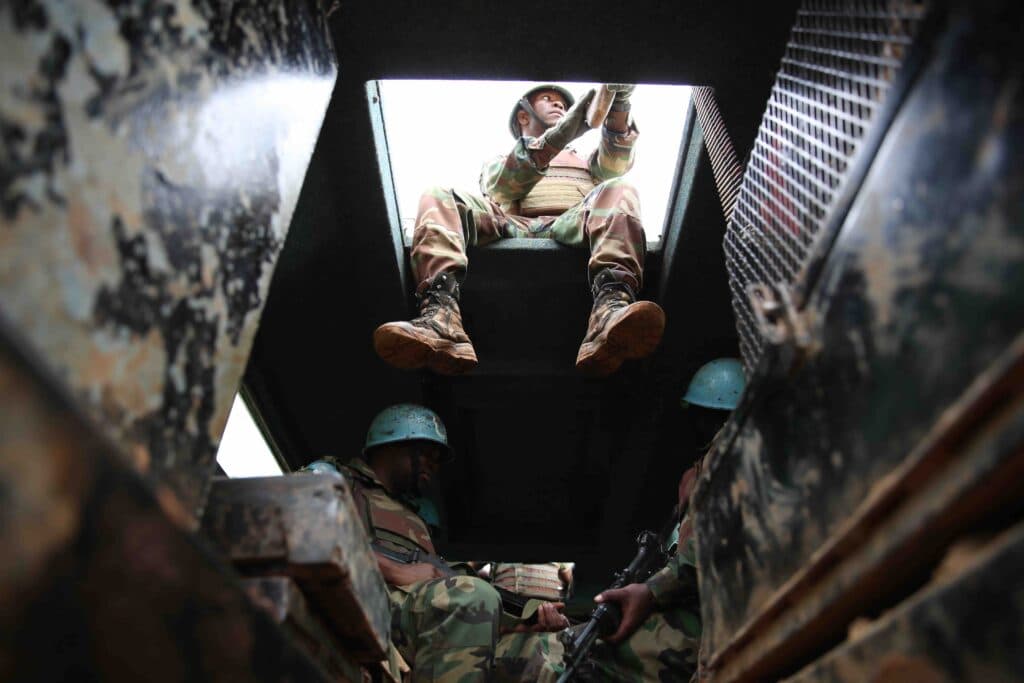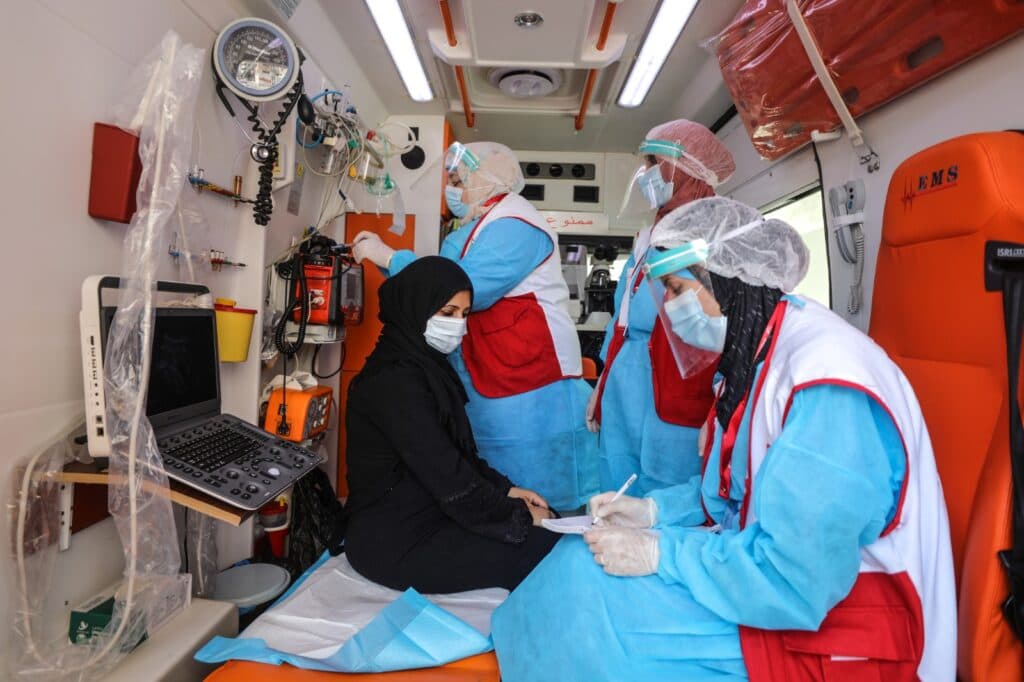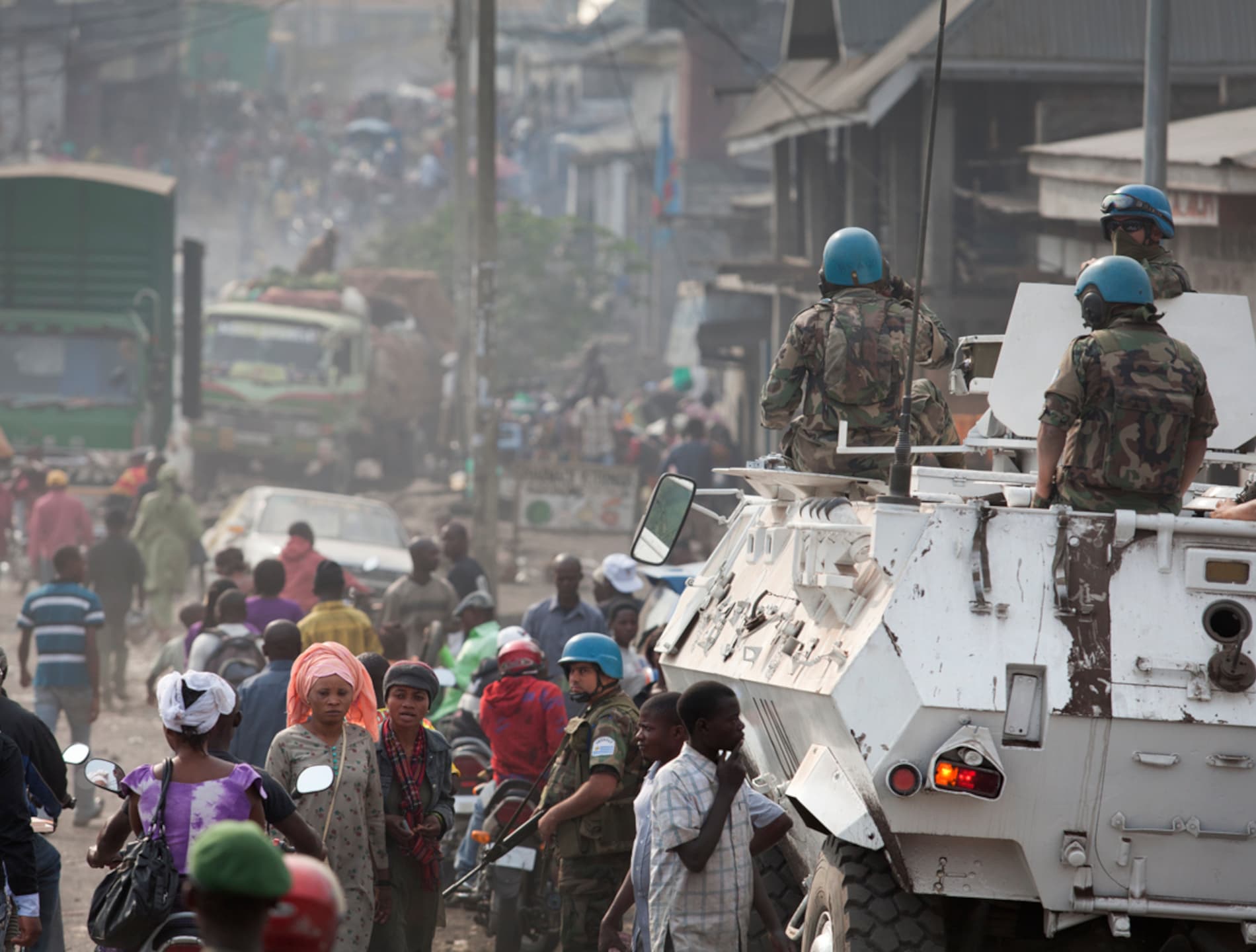
Protected persons under IHL
International humanitarian law (IHL) and the protection of certain groups during armed conflict.
Certain groups of people enjoy specific protections in international armed conflicts, such as prisoners of war, wounded and sick, and protected civilians.
‘Protected persons’ is a legal term that only applies in situations of international armed conflict (IAC). It refers to specific protections afforded to people who have fallen into the hands of or are under the control of the adversary.
The Geneva Conventions include four categories of protected persons: Prisoners of War, protected civilians in their own, enemy, or occupied territory; wounded and sick on land; wounded and sick at sea.
Each category is defined by a set of criteria.
Prisoners of war
Prisoners of war (POW) are members of armed forces or groups that, when captured and in the hands of the enemy, enjoy special protected status.
All members of armed forces are entitled to POW status. For example, if there was an armed conflict between Sweden and Norway, all Swedish soldiers in the hands of the Norwegian army would be POWs, and vice versa.
Organised armed groups that belong to a party to the conflict may also be entitled to POW status, but they must meet four collective conditions:
- Be commanded by a person who is responsible for his subordinates.
- Have a fixed distinctive sign recognisable at a distance.
- Carry arms openly.
- Conduct their operations in accordance with the laws and customs of war.
In case of doubt if a person enjoys POW status, that person should be presumed to be a POW until a competent court has decided otherwise. Persons who accompany the armed forces without being members will be afforded POW status (Art. 4(4) and (5), Third Geneva Convention), but are not classified as combatants who can be directly targeted.
Protections for prisoners of war
The protections afforded to POWs is set out in the Third Geneva Convention. Some of the main protections and regulations include:
- POWs must be treated humanely and must be subject to honourable treatment (Art. 13 and 14, Second Geneva Convention);
- There can be no discrimination based on race, nationality, religious beliefs, political opinions and the like (Art 16, Third Geneva Convention);
- They cannot be punished for their mere participation in hostilities;
- They may be punished for committing war crimes;
- Reprisals against POWs are prohibited;
- There are detailed regulations concerning the life in a POW camp;
- POWs are subject to the laws of the detaining power;
- Once the hostilities end, POWs shall be released and repatriated without delay.
Prisoners of war - still a relevant category in modern conflict?
Since the status of POW only applies in international armed conflict, its applicability in modern conflicts is limited. However, should an international armed conflict break out and soldiers fall into the hands of the enemy, POW status and the protections afforded must be respected.
While IHL provides basic protections for detainees in situations of non-international armed conflict, international human rights law outlines guarantees for prisoners in greater detail. These widely accepted rules are set out in the UN Standard Minimum Rules for the Treatment of Prisoners of 1955.
Protected civilians
All civilians are afforded some level of protection in armed conflict. However, in international armed conflict, ‘protected civilians’ enjoy a higher level of protection.
Who is a protected civilian?
Everyone who is not a combatant is a ‘protected civilian’, except:
- Civilians who are under the control of their own national authority;
- Nationals of a co-belligerent;
- Neutrals are generally not protected persons, unless they are in occupied territory or their state does not have normal diplomatic relations with the detaining party. Stateless persons are always protected civilians.
The protections afforded to protected civilians are set out in the Fourth Geneva Convention. A distinction is made between the protections granted when civilians are in the territory of a warring party, and when they are in occupied territory.
When in the territory of a warring party (own territory) or occupied territory, some of the key protections are:
- Respect for their persons, their honour, their family rights, religious convictions and practices and customs.
- They hall be humanely treated.
- They are protected against all acts of violence, including torture, rape and enforced prostitution.
- Prohibition on the application of coercion to obtain information.
- Prohibition on collective punishment.
When in the territory of the enemy:
- Have a right to leave the territory (unless this would be against the national interests of the state).
- May be subject to assigned residence.
- They shall not be transferred to a power which is not a party to the Geneva Convention.
Protections solely granted to those protected civilians in occupied territory include:
- May not be deprived the benefits of the Conventions. This could, for example, refer to an agreement made by the Occupying Power and the authorities of the occupied territory.
- Strict prohibition on individual or mass forcible transfer of the protected population.
- Strict prohibition on the transfer of the population of the Occupying Power into the occupied territory.
- Destruction of private property is prohibited except where destruction is rendered absolutely necessary by military operations.
- The Occupying Power must ensure basic needs of the protected population are met.
- The Occupying Power must ensure working of medical, hospital and education facilities.
- The Occupying Power must facilitate the delivery of humanitarian aid by third actors.
- The Occupying Power must respect local laws unless changes are needed to ensure their own security, or for the benefit of the local protected population.
Read more about the law of occupation.
Who is not a protected civilian?
The Fourth Geneva Convention sets out the following protections for all civilians – irrespective of they fall under the category of ‘protected civilians’:
- Fundamental protection under Common Article 3;
- Creation of safety and hospital zones for all;
- Wounded and sick shall be treated with respect and receive protection;
- Hospital staff should be respected and protected;
- Vehicles for the wounded and sick shall be respected and protected;
- Each warring party should allow the free passage and delivery of humanitarian aid;
- Children and orphans should be protected.
